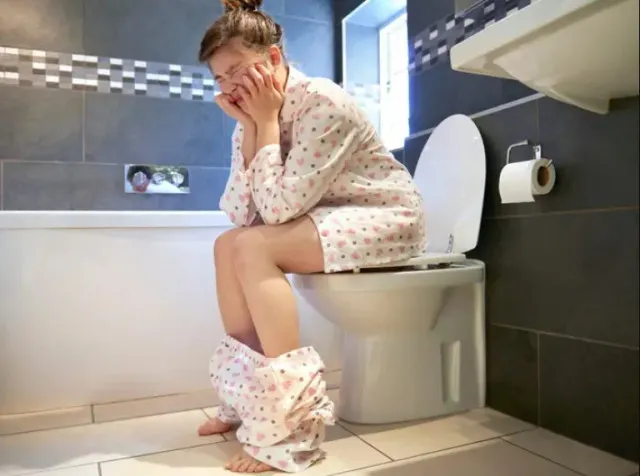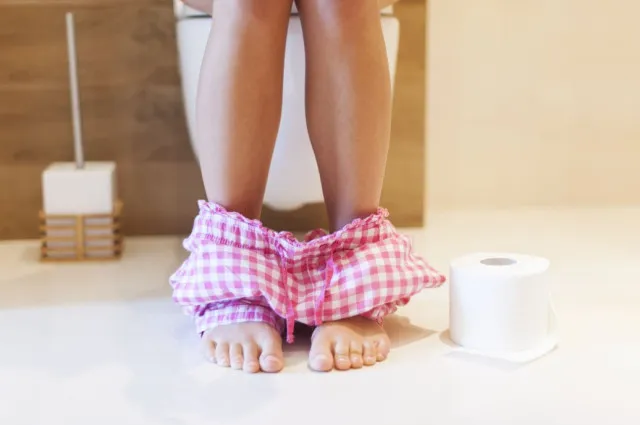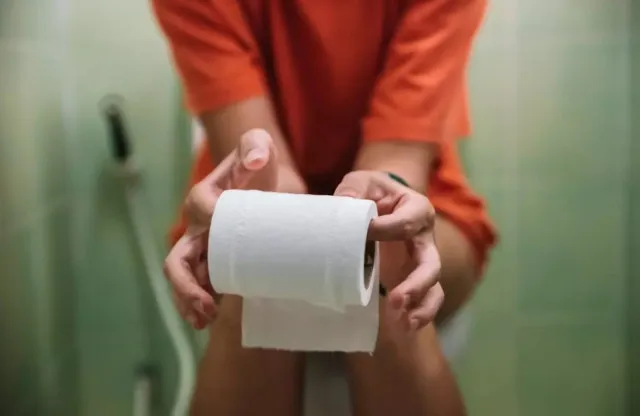A doctor explains why some people need to poop right after eating, linking it to the natural gastrocolic reflex. This urgent need to poop can be both surprising and troubling.
Dr. Salhab, a medical expert, provides some insights into why this happens and what it means for individuals who experience it regularly.

According to Dr. Joseph Salhab, a medical expert, this reflex is not a sign of an underlying health issue, but rather a natural bodily response to the act of eating.
The body’s digestive system works to break down food and absorb nutrients. Once food enters the stomach, it starts a process of digestion.
As the stomach churns and mixes the food with digestive juices, it prepares the food for the next stages of digestion.
This process triggers various physiological responses, one of which is known as the gastrocolic reflex.
What is the gastrocolic reflex?
The gastrocolic reflex is a normal reaction that helps to move food through the digestive tract.
It is a type of reflex that starts when the stomach fills with food.

The presence of food in the stomach signals the colon to start contracting and emptying its contents.
This reflex helps make space for the incoming food. For most people, this reflex is mild and doesn’t cause noticeable issues.
However, for some individuals, the gastrocolic reflex is more intense.
This heightened response can lead to an urgent need to use the bathroom shortly after eating.
Dr. Salhab notes that this can be particularly noticeable in people with certain gastrointestinal conditions, such as irritable bowel syndrome (IBS).
In these cases, the reflex may be more exaggerated, causing discomfort and frequent bowel movements.

The causes of the gastrocolic reflex leading to the poop
Certain foods and beverages can also play a role in triggering this reflex.
Dr. Salhab points out that fizzy drinks, sugary beverages, and alcohol can irritate the digestive system and amplify the gastrocolic reflex.
Dairy products and fried foods also cause problems for some people.
Citrus fruits, while generally healthy, can sometimes contribute to digestive discomfort.
People with IBS often have a more sensitive digestive system.
They may experience a stronger reaction to the gastrocolic reflex, leading to urgent bathroom visits.
IBS is a condition that affects the large intestine and can cause symptoms like cramping, diarrhea, and constipation.
The intensity of these symptoms can vary from person to person.
How can we avoid gastrocolic reflex?

Dr. Salhab advises that individuals experiencing frequent and urgent bowel movements after eating should consider their diet and lifestyle.
Keeping a food diary can help identify any foods or drinks contributing to the problem.
By tracking what is eaten and when symptoms occur, individuals can gain insights into what might be causing their discomfort.
For those with IBS or other digestive issues, it might be helpful to adjust their diet.
Reducing or avoiding problematic foods and beverages can lead to improvements.
Managing stress and ensuring a balanced diet can also have a positive impact.
Stress affects digestive health, and finding ways to reduce stress can help manage symptoms.
Eating smaller, more frequent meals instead of large ones might also be beneficial.